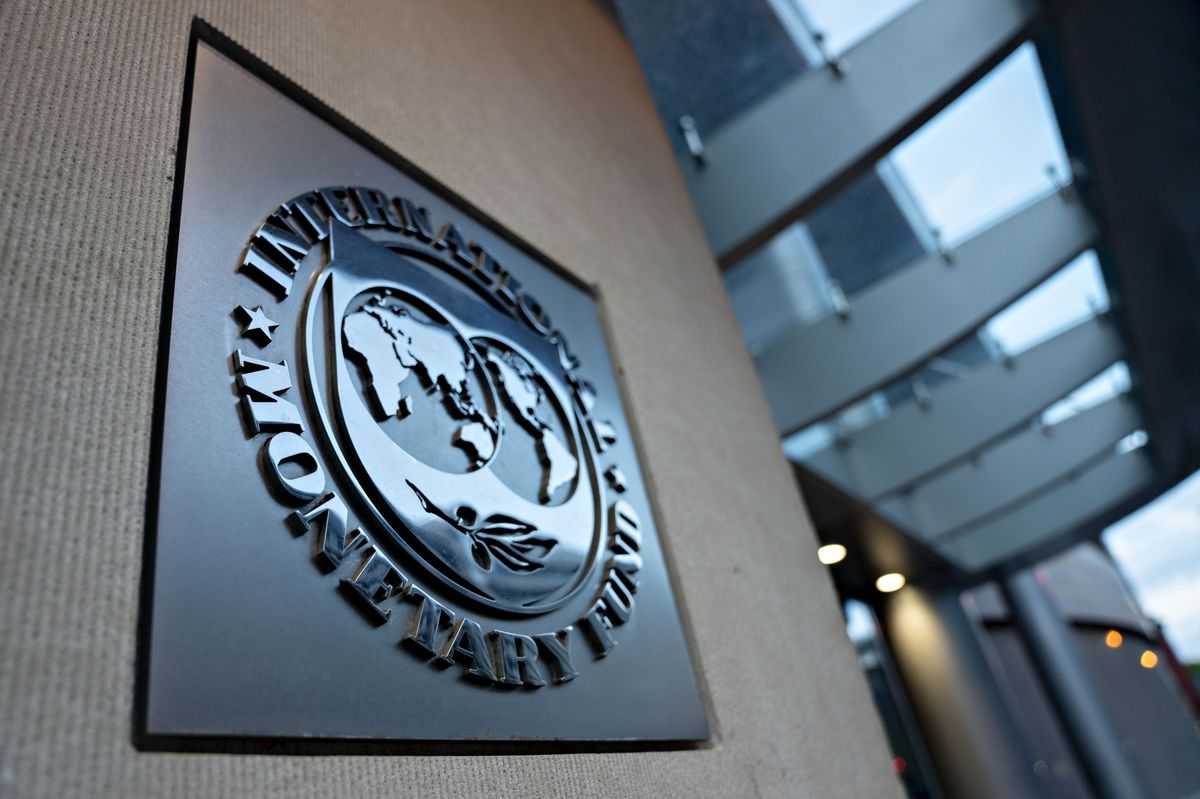
IMF Slashes Global Growth Forecast By Shahbaz Rana
ISLAMABAD: The International Monetary Fund (IMF) has raised the global inflation forecast but slashed the economic growth projection due to cooling off economic powerhouses, warning that concerns over recession have mounted.
In its World Economic Outlook Update, the IMF said on Tuesday in the baseline scenario, the global economy was projected to grow 3.2% in 2022, down by 0.4%. It will further moderate to 2.9% in 2023, which is 0.7-percentage-point lower than the previous forecast.
Although the IMF report did not mention Pakistan, the slow growth and high inflation in its main trading partners – the United States, Europe and China – will have severe implications for Islamabad. High global energy prices have already hit the country hard and a slowdown in economic growth and weakening purchasing power of consumers may also affect Pakistan’s exports and remittances.
The IMF said contrary to its earlier predictions, economies of the US and Europe had been impacted more than Russia due to the first major war in Europe since World War-II.
“The current outlook is extraordinarily uncertain,” the IMF said, adding that economic uncertainty and concerns regarding an oncoming recession had increased in recent months and estimates of the probability of recession had also increased.
The report underlined that the US, Europe, the United Kingdom, China and India were all slowing down.
The probability of a recession starting in the Group of Seven economies was estimated to be nearly 15% – four times its usual level – and nearer one in four in Germany, said the IMF.
It added that for the US, some indicators, such as the Federal Reserve Bank of Atlanta’s GDPNow forecasting model, suggested that a technical recession (defined as two cons ecutive quarters of negative growth) may have already started.
Russia’s economy was estimated to have contracted during the second quarter by less than previously projected, with crude oil and non-energy exports holding up better than expected, said the IMF.
In addition, domestic demand in Russia is also showing some resilience thanks to containment of the effect of sanctions on the domestic financial sector and a lower-than-anticipated weakening of the labour market.
“The war’s effects on major European economies have been more negative than expected, owing to higher energy prices as well as weaker consumer confidence and slower momentum in manufacturing, resulting from persistent supply chain disruptions and rising input costs,” said the IMF.
Downgrades for China and the US, as well as for India, are driving the downward revisions to global growth during 2022-23, which reflect the materialisation of downside risks. “The risks to the outlook are overwhelmingly tilted to the downside.”
The world economy is hit hard by a sharper slowdown in China due to extended lockdowns, tightening global financial conditions associated with expectations of steeper interest rate hikes by major central banks to ease inflation pressure, and spillovers from the war in Ukraine.
The IMF said that the targeted fiscal support could help cushion the impact on the most vulnerable, but with government budgets stretched by the pandemic and the need for a disinflationary overall macroeconomic policy stance, such policies would need to be offset by increased taxes or lower government spending.
It added tighter monetary conditions would also affect financial stability, requiring judicious use of macro prudential tools and making reforms to debt resolution frameworks all the more necessary.
The IMF slashed China’s growth forecast by 1.1% to just 3.3% – the slowest pace in four decades.
The IMF said for emerging market and developing economies, the negative revisions to growth in 2022-23 reflected mainly the sharp slowdown of China’s economy and the moderation in India’s economic growth. The outlook for India has been revised down by 0.8 percentage point to 7.4%.
The war in Ukraine continues, causing widespread hardship. The war’s humanitarian cost is rising, with 9 million people having fled Ukraine since the Russian invasion started and continuing loss of life and destruction of physical capital.
Since April 2022, major advanced economies have placed additional financial sanctions on Russia, and the European Union agreed on embargoes on imports of coal starting in August 2022 and on Russian seaborne oil starting in 2023.
The European Union announced that it would block insuring and financing maritime transport of Russian oil to third countries by the end of 2022.
Inflation
Global inflation has been revised up due to food and energy prices as well as lingering supply-demand imbalances, and it is anticipated to reach 6.6% in advanced economies and 9.5% percent in developing economies this year. The forecast has been upward revised by 0.9% for this year and 0.8 percentage point for next year. In 2023, disinflationary monetary policy is expected to bite, with global output growing by just 2.9%, said the IMF.
In the United States, the consumer price index rose by 9.1% in June, compared with a year earlier, and it also rose by 9.1% in the United Kingdom in May – the highest inflation rates in these two countries in 40 years. In the euro area, inflation in June reached 8.6 %, its highest level since the inception of the monetary union.
IMF Slashes Global Growth Forecast By Shahbaz Rana
Published in The Express Tribune, July 27th, 2022.

